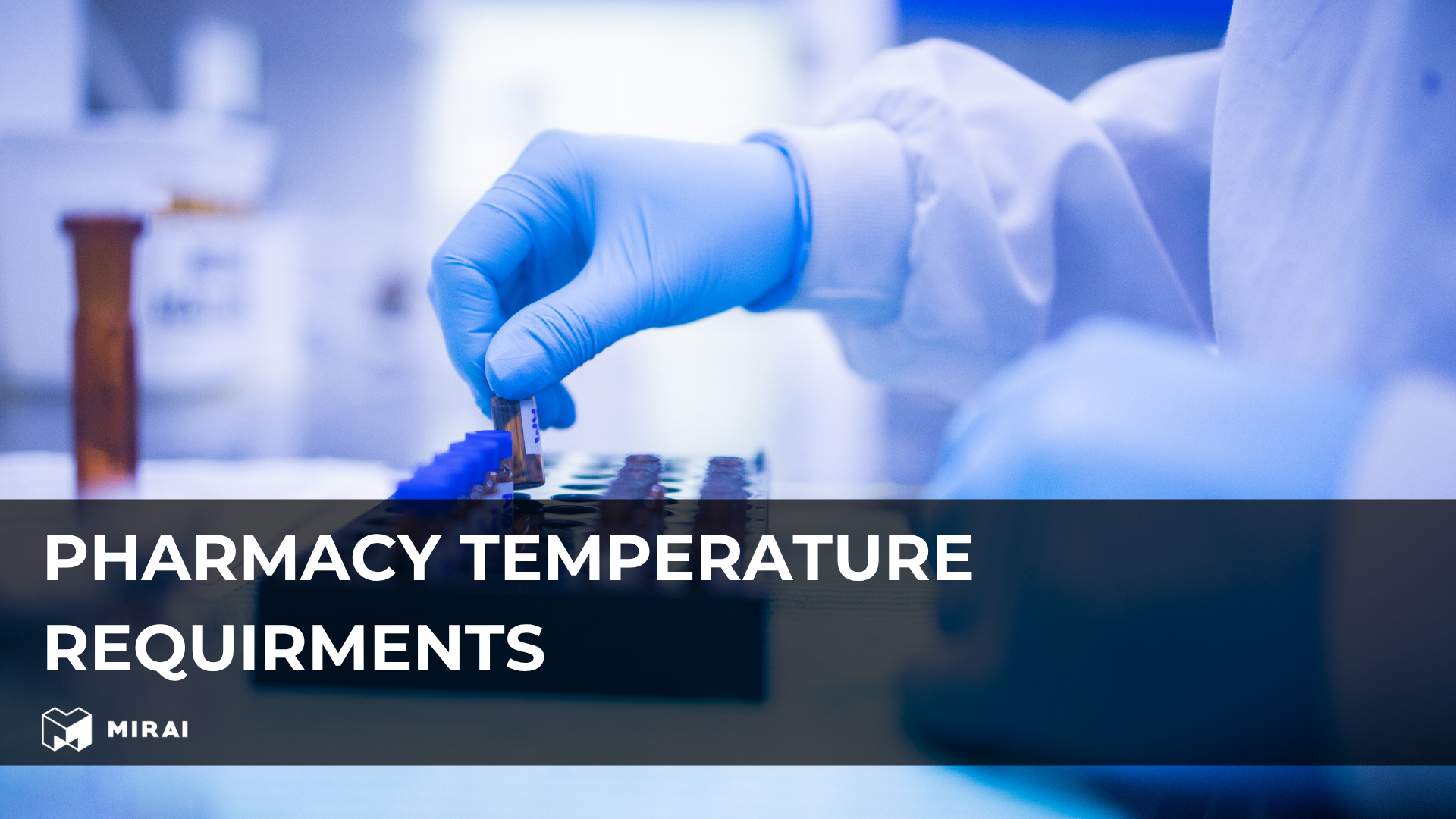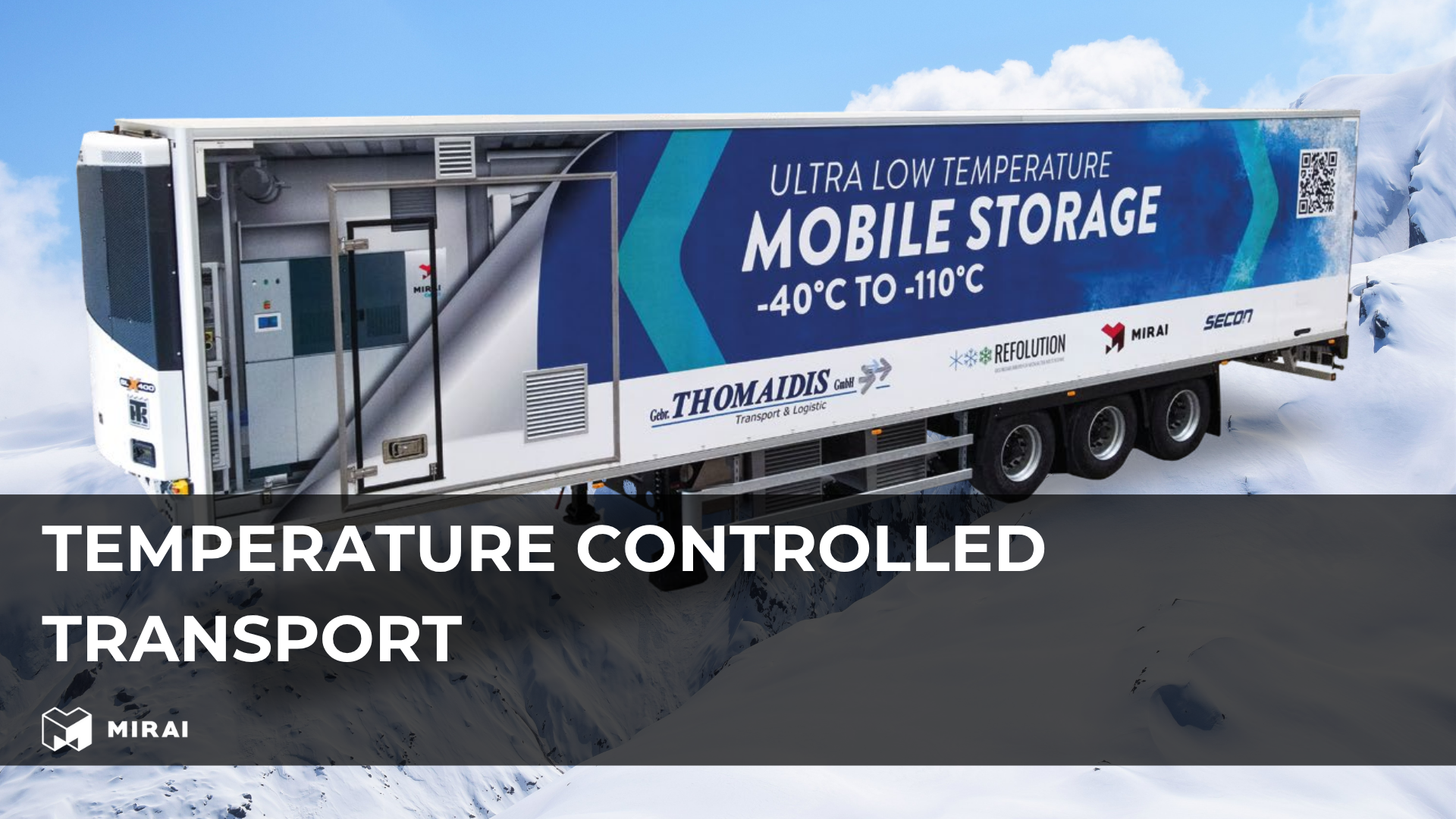Pharmacy Temperature Requirements

Why pharmacy temperature requirements are critical
Pharmacy temperature requirements are essential for safe and effective patient care. Medications are chemical compounds that can break down or lose potency if they are exposed to temperatures outside the specified ranges for refrigerated and room temperature storage. When a pharmacy fails to maintain proper storage temperatures, it may face product recalls, wasted stock, legal penalties, and potential harm to patients. In hospitals and clinical settings, the stakes are even higher due to the presence of life-saving biologics and vaccines that must remain stable. Strictly following pharmacy temperature requirements ensures product integrity, protects patient safety, and keeps healthcare providers compliant with international standards.
Pharmacy Temperature Requirements & Ranges
Every pharmacy must have reliable systems in place to control and monitor temperatures for medication storage. Regulatory agencies specify acceptable ranges:
- Refrigerated storage: +2°C to +8°C for vaccines, insulin, and many antibiotics
- Controlled room storage: 15°C to 25°C for general prescription medicines
- Frozen storage: -15°C to -50°C for certain biological materials
- Ultra-low temperature: down to -80°C for advanced therapies
In hospitals, the maximum temperature for refrigerated medication storage is crucial. Even a short excursion above +8°C can spoil sensitive stock. To ensure compliance, pharmacies should document all temperature readings, calibrate equipment, and conduct temperature mapping studies.
Medication Temperature Ranges
Different types of medicines need specific and controlled storage conditions to keep them stable, safe, and effective. Each product group reacts differently to temperature changes, making it vital to maintain the correct storage conditions:
- Vaccines and insulin must be stored at +2°C to +8°C in specialized medical refrigerators. Even brief exposure to freezing can damage vaccines, while insulin becomes less effective if it gets too warm.
- Plasma, cell-based therapies, and gene therapies typically require -15°C to -50°C to maintain biological activity and prevent degradation. These therapies are costly and sensitive, so reliable freezers are essential.
- Advanced biologics and mRNA vaccines often need ultra-low temperature storage down to -80°C to keep complex molecules like lipids and proteins stable. These products risk spoilage during temperature excursions.
- General pharmaceuticals, including tablets, capsules, and many liquid formulations, should be stored at 15°C to 25°C to maintain chemical integrity and prevent early expiration.
Maintaining these temperature levels is not just about regulations; it directly impacts drug stability, shelf life, and clinical effectiveness. If a pharmacy or hospital exceeds the recommended refrigerated temperature range, products may lose potency or become unsafe for patients. This can result in significant financial losses, compliance issues, and possible harm to patients. Reliable refrigeration systems and continuous monitoring are essential to protect inventory and meet strict pharmacy temperature requirements.
Medication Storage in Pharmacies
Pharmacies rely on a mix of solid infrastructure and technology to ensure reliable medication storage temperatures. Successful storage strategies often include:
- Validated refrigerators and freezers for precise temperature control
- Temperature mapping to identify hot and cold spots within storage units
- Digital monitoring systems that send real-time alerts if storage temperatures exceed limits
- Backup power systems to protect stock during outages
- Regular staff training on proper handling and documentation
By implementing these best practices, pharmacies can stay compliant with temperature requirements and minimize the risk of costly product loss.
Hospital & Clinical Pharmacy Temperature Requirements
Hospital and clinical pharmacies face added complexity. They often manage expensive and highly sensitive items like oncology drugs, biologics, and advanced therapies. The room temperature for medication storage in these facilities must be validated, documented, and continuously monitored. Hospital refrigeration must incorporate redundancy, alarm systems, and the ability to maintain ultra-low conditions if necessary. Compliance is essential for passing audits, meeting patient safety standards, and supporting advanced treatment programs.
Mirai products that can be used
At Mirai Intex, we create high-quality refrigeration technology for pharmacies, hospitals, and OEM manufacturers that need reliable ultra-low temperature storage. Our systems operate from +90°C down to -160°C, performing best between -160°C and -40°C, making them perfect for sensitive biologics and specialized pharmaceutical applications.
Why Mirai Intex refrigeration is the smart choice:
- Easy integration for OEM clients and end users
- Eco-friendly technology using only air as a refrigerant, avoiding restrictions like F-gas regulations
- Highly efficient and reliable, ensuring long-term performance with low maintenance
- Lightweight and easy to install, saving time and costs
- Designed to support temperature requirements for refrigerated medication and ultra-low pharmaceutical storage
Our air-cycle cooling technology is sustainable, future-proof, and well-suited for pharmacies and hospitals needing precise temperature control while reducing environmental impact.
Monitoring & Compliance Best Practices for Pharmacies
To ensure safe storage and meet pharmacy temperature requirements, pharmacies should implement the following strategies:
- Continuous monitoring with digital sensors in every refrigeration unit
- Smart alert systems that notify staff of deviations from the required temperature range
- Data logging and documentation for audits and regulatory inspections
- Regular validation of refrigeration equipment for reliable performance
- Redundant power systems like UPS or generators for critical storage
- Staff training on how to respond to alarms and temperature fluctuations
- Routine preventive maintenance for refrigeration systems to prevent failures
These actions help maintain stable temperatures for medication storage, protect valuable inventory, and ensure full compliance with refrigeration regulations.
Extended Industry Insights
With the growing demand for biologics, mRNA vaccines, and advanced therapies, ultra-low temperature solutions are essential. Traditional refrigeration often struggles at extreme cold levels, while Mirai Intex systems perform well from -160°C to -40°C, meeting the most demanding pharmacy temperature needs. Our technology allows both large hospital networks and specialized research pharmacies to remain compliant, eco-friendly, and prepared for the future.
Conclusion
Strict control of pharmacy temperature requirements is crucial for patient safety, regulatory compliance, and cost efficiency. Pharmacies and hospitals can rely on advanced refrigeration solutions like Mirai Intex ultra-low temperature machines to maintain stability even under challenging conditions. Our systems are eco-friendly, efficient, reliable, and easy to integrate, making them excellent choices for OEM manufacturers and healthcare providers.
By choosing Mirai Intex technology, pharmacies can confidently meet medication storage standards, protect sensitive inventory, and prepare for the future of modern medicine.

